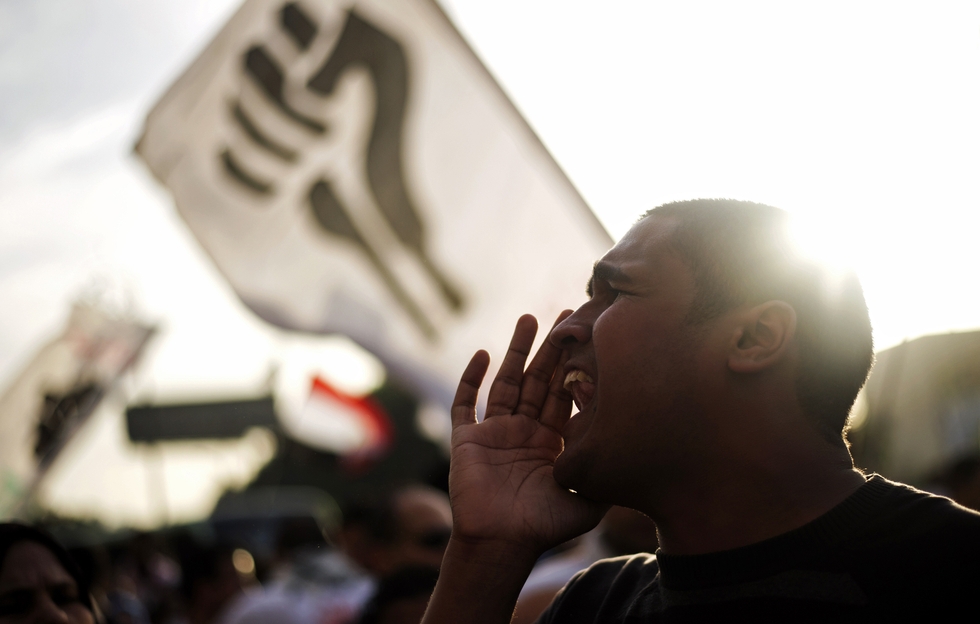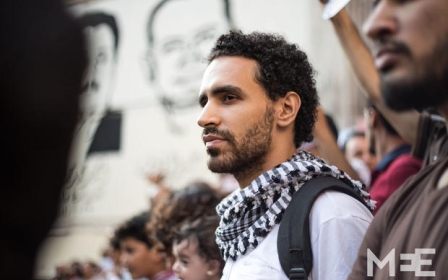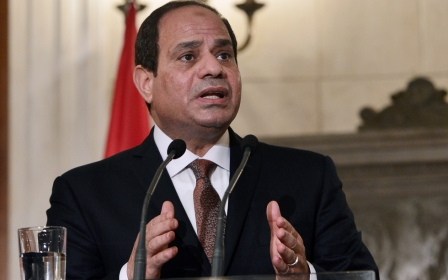Egypt arrests leaders of anti-Mubarak youth movement

Egyptian authorities arrested four leaders of a youth movement that led the 2011 revolt against former president Hosni Mubarak, judicial officials said.
The Monday arrests of the leaders of the April 6 movement came less than one month before the fifth anniversary of the 25 January revolt that toppled Mubarak.
Sherif Arubi, Mohamed Nabil, Ayman Abdel Megid and Mahmud Hesham were arrested at their homes on Monday morning.
"The four are accused of inciting violence" and will be held for 15 days under preventative detention, a judicial official told the AFP news agency.
The arrests came less than a week after President Abdel Fattah el-Sisi warned that protests to mark the 2011 revolution threatened to destroy Egypt.
Various opposition groups, including the now outlawed Muslim Brotherhood, have put out calls for mass protests on 25 January 2016 to mark the five-year anniversary of an 18-day revolution that eventually toppled Mubarak.
“Why do you want to ruin [Egypt]? I came by your will and your choice and not despite it,” Sisi said during a speech at al-Azhar, the most prominent Sunni Islamic institution in the country.
Authorities have cracked down on all forms of opposition since the army toppled Mubarak's Muslim Brotherhood successor Mohamed Morsi in July 2013.
The government adopted a new law in November 2013 outlawing demonstrations that had not been given advance authorisation.
Hundreds of Islamist, secular and left-wing demonstrators have been jailed under the legislation.
Alaa Abdel Fattah, a leading secular activist in the protests that led to Mubarak's downfall, was sentenced to five years in prison.
His sister Sanaa Seif was sentenced to two years. The founder of the April 6 movement, Ahmed Maher, received a three-year term.
There have been calls for Sisi - who was army chief when Morsi was removed - to pardon figures from the 2011 uprising.
Following Morsi's removal, his supporters were targeted in a campaign of bloody repression in which hundreds were killed and thousands imprisoned.
Hundreds, including Morsi, have been sentenced to death in speedy mass trials the United Nations has said are "unprecedented in recent history".
Middle East Eye propose une couverture et une analyse indépendantes et incomparables du Moyen-Orient, de l’Afrique du Nord et d’autres régions du monde. Pour en savoir plus sur la reprise de ce contenu et les frais qui s’appliquent, veuillez remplir ce formulaire [en anglais]. Pour en savoir plus sur MEE, cliquez ici [en anglais].




